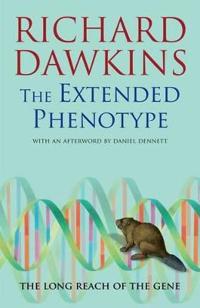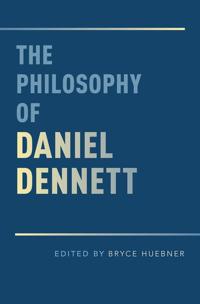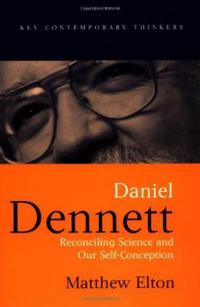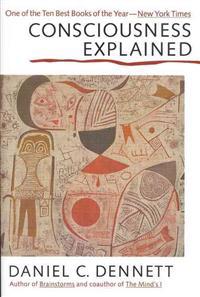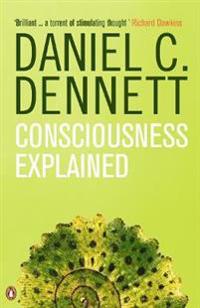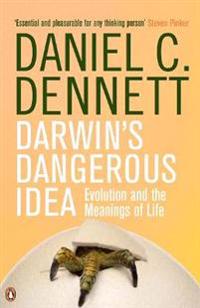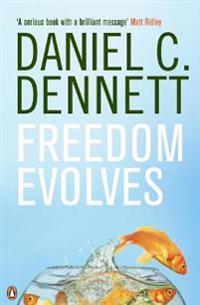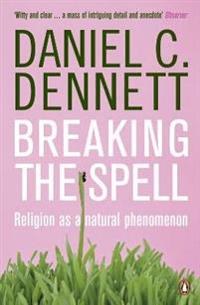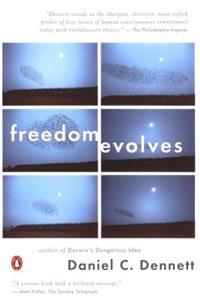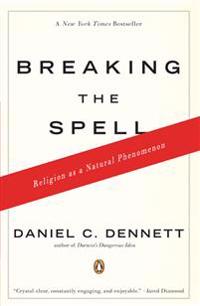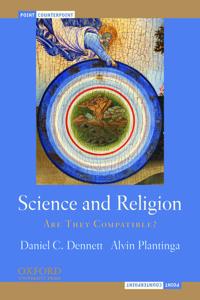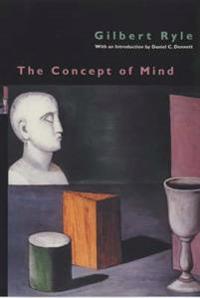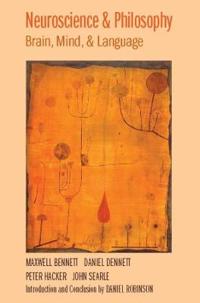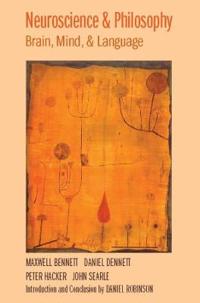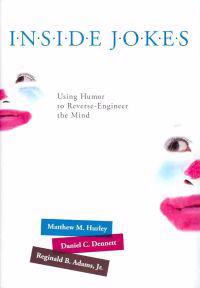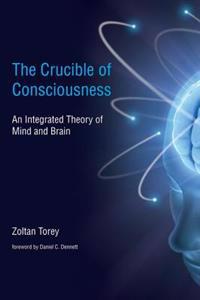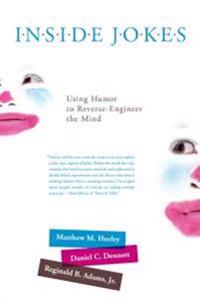The Extended Phenotype (Pocket)
avRichard Dawkins, Daniel Dennett, Richard Dawkins
ISBN: 9780192880512 - UTGIVEN: 199908By the best selling author of The Selfish Gene 'This entertaining and thought-provoking book is an excellent illustration of why the study of evolution is in such an exciting ferment these days.' Science 'The Extended Phenotype is a sequel to The Selfish Gene ...he writes so clearly it could be un[...]
The Philosophy of Daniel Dennett
ISBN: 9780199367511 - UTGIVEN: 2017-12Daniel C. Dennett began publishing innovative philosophical research in the late 1960s, and he has continued to do so for the past 45 years. He has addressed questions about the nature of mind and consciousness, the possibility of freedom, and the significance of evolution to addressing questions ac[...]
Intuition Pumps and Other Tools for Thinking (Häftad)
avDaniel Dennett
ISBN: 9780241954621 - UTGIVEN: 2014-03-03A few of us may be natural geniuses; others are blessed with reserves of willpower. Then there's the rest of us: not prodigies and short on time, but still aspiring to understand the world. What can we do? This guide enables you to tackle life's questions - evolution, meaning, consciousness and free[...]
Daniel Dennett (Inbunden)
ISBN: 9780415588140 - UTGIVEN: 2014-03SPECIAL INTRODUCTORY PRICE! (Valid until 3 months after publication) Daniel Dennett has been one of the central voices in the philosophy of mind for at least the past forty years. Unlike most philosophers of his generation, Dennett's work has resonated far and wide. It has powerfully influenced the [...]
Daniel Dennett: Reconciling Science and Our Self-Conception (Inbunden)
avMatthew Elton
ISBN: 9780745621166 - UTGIVEN: 2003-10-31Daniel Dennett: Reconciling Science and Our Self-Conception (Häftad)
avMatthew Elton
ISBN: 9780745621173 - UTGIVEN: 200310Daniel Dennett is one of the most influential thinkers at the interface between philosophy and science. This book is the first comprehensive examination of Dennett's ideas on the nature of thought, consciousness, free will, and the significance of Darwinism. * A highly original introduction to conte[...]
Daniel Dennett (Häftad)
avDavid L. Thompson
ISBN: 9781847060082 - UTGIVEN: 2009-06This book offers an introduction to and overview of Dennett's ideas, his writings and his contributions to the various fields of philosophy. Daniel Dennett is one of America's most important and influential contemporary philosophers. He has made considerable contributions to the philosophy of mind a[...]
Hjärnstormar : filosofiska essäer om medvetande och psykologi (Häftad)
avDaniel Dennett
ISBN: 9789188248046 - UTGIVEN: 199201Dennett diskuterar de grundläggande frågorna rörande medvetandet. Han presenterar sin syn på vad trosföreställningar är och deras roll vid förklarandet av mänskligt handlande. Vidare försöker han förklara vilka medvetandets objekt är, och medvetandets natur.
Consciousness Explained (Häftad)
avDaniel C. Dennett, Dennett
ISBN: 9780316180665 - UTGIVEN: 199210Advances a new theory of consciousness based on insights gleaned from the fields of neuroscience, psychology, and artificial intelligence, and clears away obsolete myths about the process of thinking in conscious beings[...]
Consciousness Explained (Storpocket)
avDaniel C. Dennett
ISBN: 9780140128673 - UTGIVEN: 199306In "Consciousness Explained", Daniel C. Dennett reveals the secrets of one of the last remaining mysteries of the universe: the human brain. Daniel C. Dennett's now-classic book blends philosophy, psychology and neuroscience - with the aid of numerous examples and thought-experiments - to explore ho[...]
Darwin's Dangerous Idea (Storpocket)
avDaniel C. Dennett
ISBN: 9780140167344 - UTGIVEN: 199609In Darwin's "Dangerous Idea: Evolution and the Meanings of Life" Daniel C. Dennett argues that the theory of evolution can demystify the miracles of life without devaluing our most cherished beliefs. From the moment it first appeared, Charles Darwin's theory of evolution by natural selection has bee[...]
Freedom Evolves (Storpocket)
avDaniel C. Dennett
ISBN: 9780140283891 - UTGIVEN: 200402Daniel C. Dennett's "Freedom Evolves" tackles the most important question of human existence - is there really such a thing as free will? How can humans make genuinely independent choices if we are just a cluster of cells and genes in a world determined by scientific laws? Here, Daniel Dennett provi[...]
Breaking the Spell (Storpocket)
avDaniel C. Dennett
ISBN: 9780141017778 - UTGIVEN: 200703In "Breaking the Spell" Daniel C. Dennett explores how the great ideas of religion have enthralled us for thousands of years - and whether we could (or should) break free. What is religion and how did it evolve? Is it the product of blind evolutionary instinct or of rational choice? Is the only way [...]
Freedom Evolves (Häftad)
avDaniel C. Dennett
ISBN: 9780142003848 - UTGIVEN: 200401Can there be freedom and free will in a deterministic world? Renowned philosopher Daniel Dennett emphatically answers "yes " Using an array of provocative formulations, Dennett sets out to show how we alone among the animals have evolved minds that give us free will and morality. Weaving a richly de[...]
Breaking the Spell: Religion as a Natural Phenomenon (Häftad)
avDaniel C. Dennett
ISBN: 9780143038337 - UTGIVEN: 200702A Tufts University professor explores the nature of faith and how religion shapes everyday life and the future, addressing controversial issues about the relevance and rational qualities of faith while tracing the history of organized religion from its roots in folk beliefs to its key role in modern[...]
Science and Religion (Häftad)
avDaniel C. Dennett, Alvin Plantinga
ISBN: 9780199738427 - UTGIVEN: 201012One of today's most controversial and heated issues is whether or not the conflict between science and religion can be reconciled. In Science and Religion: Are They Compatible?, renowned philosophers Daniel C. Dennett and Alvin Plantinga expand upon the arguments that they presented in an exciting l[...]
The Concept of Mind (Häftad)
avGilbert Ryle, Daniel C. Dennett
ISBN: 9780226732961 - UTGIVEN: 200012This now-classic work challenges what Ryle calls philosophy's "official theory," the Cartesians "myth" of the separation of mind and matter. Ryle's linguistic analysis remaps the conceptual geography of mind, not so much solving traditional philosophical problems as dissolving them into the mere con[...]
Neuroscience and Philosophy (Inbunden)
avMaxwell R. Bennett, Daniel C. Dennett, Peter Hacker
ISBN: 9780231140447 - UTGIVEN: 200703In Neuroscience and Philosophy three prominent philosophers and a leading neuroscientist clash over the conceptual presuppositions of cognitive neuroscience. The book begins with an excerpt from Maxwell Bennett and Peter Hacker's Philosophical Foundations of Neuroscience (Blackwell, 2003), which q[...]
Neuroscience and Philosophy (Häftad)
avMaxwell Bennett, Daniel C. Dennett, Peter Hacker
ISBN: 9780231140454 - UTGIVEN: 200903In Neuroscience and Philosophy three prominent philosophers and a leading neuroscientist clash over the conceptual presuppositions of cognitive neuroscience. The book begins with an excerpt from Maxwell Bennett and Peter Hacker's Philosophical Foundations of Neuroscience (Blackwell, 2003), which q[...]
Inside Jokes (Inbunden)
avMatthew M. Hurley, Daniel C. Dennett, Reginald B. Adams
ISBN: 9780262015820 - UTGIVEN: 201104Some things are funny -- jokes, puns, sitcoms, Charlie Chaplin, The Far Side, Malvolio with his yellow garters crossed -- but why? Why does humor exist in the first place? Why do we spend so much of our time passing on amusing anecdotes, making wisecracks, watching The Simpsons? In Inside Jokes, Mat[...]
The Crucible of Consciousness (Pocket)
avZoltan Torey, Daniel C. (FRW) Dennett, Zoltan Torey
ISBN: 9780262512848 - UTGIVEN: 2009-06We are material beings in a material world, but we are also beings who have experiences and feelings. How can these subjective states be just a matter of matter? Philosophical materialists have formulated what is sometimes called "the phenomenal concept strategy" (which holds that we possess a range[...]
Inside Jokes (Häftad)
avMatthew M. Hurley, Daniel C. Dennett, Reginald B. Adams
ISBN: 9780262518697 - UTGIVEN: 201302Some things are funny -- jokes, puns, sitcoms, Charlie Chaplin, The Far Side, Malvolio with his yellow garters crossed -- but why? Why does humor exist in the first place? Why do we spend so much of our time passing on amusing anecdotes, making wisecracks, watching The Simpsons? In Inside Jokes, Mat[...]
Elbow Room: The Varieties of Free Will Worth Wanting (Häftad)
avDaniel C. Dennett
ISBN: 9780262540421 - UTGIVEN: 1984-11Anyone who has wondered if free will is just an illusion or has asked 'could I have chosen otherwise' after performing some rash deed will find this book an absorbing discussion of an endlessly fascinating subject. Daniel Dennett, whose previous books include "Brainstorms "and (with Douglas Hofstadt[...]
The Intentional Stance (Häftad)
avDaniel C. Dennett
ISBN: 9780262540537 - UTGIVEN: 198901How are we able to understand and anticipate each other in everyday life, in our daily interactions? Through the use of such "folk" concepts as belief, desire, intention, and expectation, asserts Daniel Dennett in this first full-scale presentation of a theory of intentionality that he has been deve[...]

